Hello and welcome to outsourcesem.com blog for learning SEO techniques!
When we talk about Search Engine Optimization, the most sought-after topic is ‘Link Building’. And, this is exactly what we are going to discuss today.
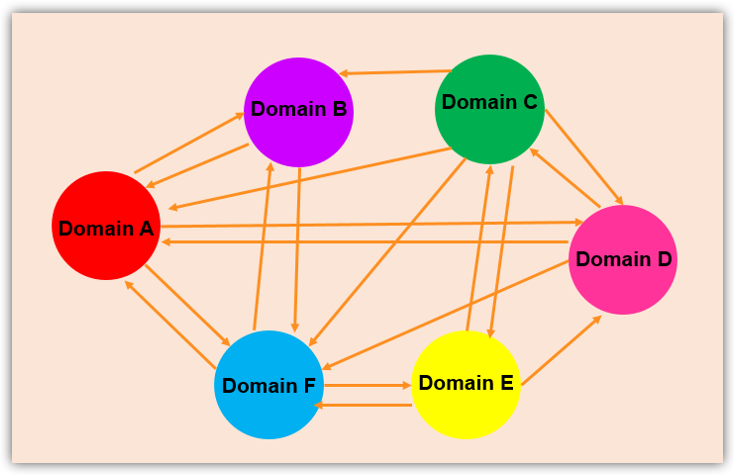
Link Building is an important strategy for Search Engine Optimization. It is quite an interesting subject and a vast one too. Link Building is all about how you create channels to spread your online presence. Like a spider-web, where all the threads are wide-spread, interconnected and leading to each other.
Talks on ‘Link Building’ may go endless. This is an effort to present all the relevant knowledge about Link Building in a systematic way, which could be understood even by the beginners.
This whole guide is going to be in chapters for the ease of reading and understanding.
And, in today’s session, we are talking about ‘What is Link Building?’. Also, we will get to know all the ‘important terms’ necessary for better understanding of the subject ‘Link Building’ going ahead.
It is a chapter on ‘Fundamentals of Link Building’ basically.
Chapter 1
Ultimate Guide to Fundamentals of Link Building
Link building is the practice of getting a ‘Link’ (also known as Hyperlink) on the other website owner’s page, which leads to your page or website, with the primary focus of promoting your business.
In other words, the process of getting inbound links from a third-party website pointing towards your own website is known as Link Building.
If you are new to Search Engine Optimization, then probably, you may be wondering “What is exactly Link Building?”. You may have questions like, “What’s the use of Link Building?”, “Why to build links?”, “How to build links?”, etc.
If so, then, you are at the right place. And, no; it doesn’t mean this is not the right place for you if you are not new to Link Building. Just continue reading to know the Best Strategies to build links for Search Engine Optimization.
But, before we get into the subject of ‘Link Building’ and strategies in detail, let’s get introduced to a few terms related to Link Building. This would help in better understanding of the subject.
List of Important Terms related to Links and Link Building - An introduction
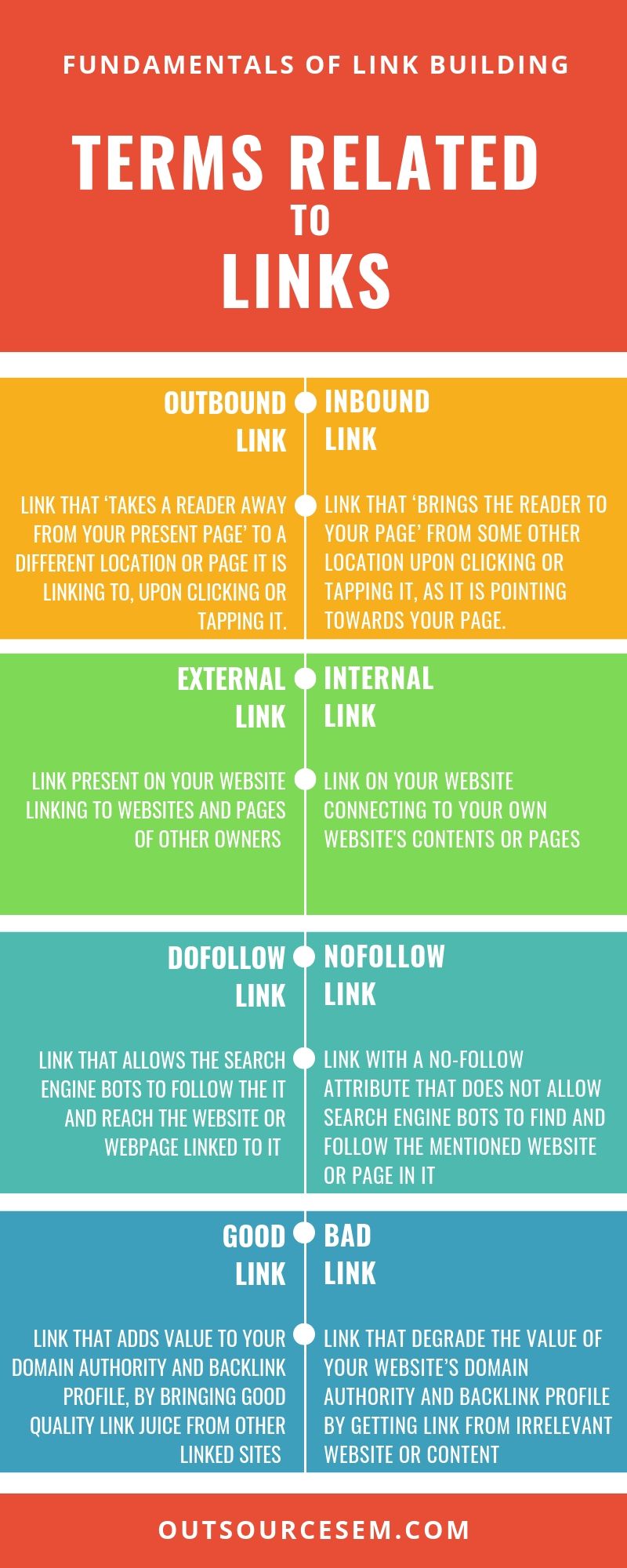
1. Link: A link, is also known as a Hyperlink or a Web-link.
It may be present in a form of a text, graphic, image or an icon in an online document or page.
The term refers to a data on an online page that links or connects to another page or content at a different online location. The reader or visitor of the page can follow and reach the connected content by clicking or tapping on it.
Means, when a reader or a page visitor clicks or taps on a Link, the visitor is taken to a different location to which that specific link is connected to.
2. Outbound Link: Outbound Link is a link that ‘takes the reader away from your present page’ to a different location or page it is pointing or linking to, upon clicking or tapping it.
3. Inbound Link: Inbound link is a link that ‘brings the reader to your page’ from some other location upon clicking or tapping it, as it is pointing towards and connected to your page content.
This happens when other sites refer to your content to mention some relevant context, and give a link to your page on their own website.
4. External Links: The term ‘external links’ refer to links present on your website linking to websites or pages of other owners (that is the outbound links).
5. Internal Links: The term ‘internal links’ refer to links on your website connecting to your own website pages. That is, linking to your own site’s content pages or services.
P.S.
Always ensure that you give links to contents on other good sites or pages and Google Support. It helps in getting better position on Search Engine Result Pages.
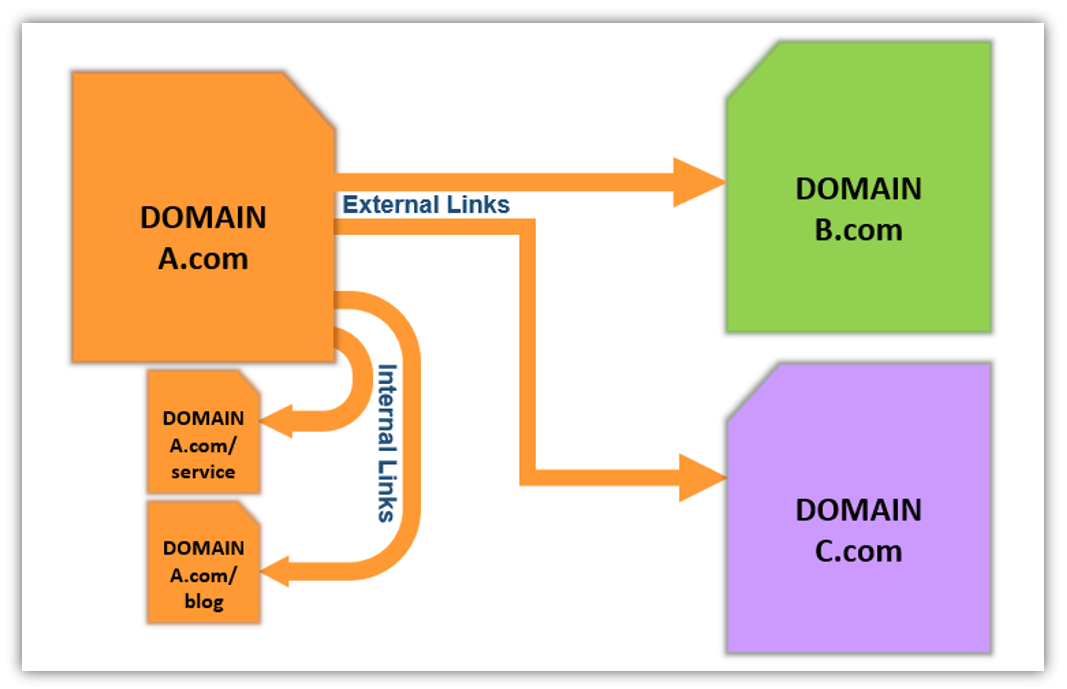
6. Content: Any data or information created in the form of text, image, graphics, charts, videos, etc. and provided on a page of a website is known as a Content.
7. Search Engine: It is a program or a tool that is used for ‘searching and identifying data or items’ in an already provided database.
The Results on a Search Engine correspond to the specific keywords (characters or terms) mentioned by the online visitors used especially for finding particular sites or items on the World Wide Web.
8. SERP: Search Engine Result Pages are the set of pages displayed by a Search Engine as a response to a search or query made by a user.
When a user mentions a specific keyword or term in the Search Bar of a Search Engine, as a response to this query, the Search Engine returns with pages having a list of results containing information about the websites which have data corresponding to the searched keyword or term. These pages showing the results to a search on a Search Engine are known as ‘Search Engine Result Pages’.
9. SEO: Search Engine Optimization is the process of optimizing a website so that it could be easily found on a Search Engine.
In other words, SEO is the process of getting a better position on Search Engine Result Pages using many tools and techniques to get better visibility with a goal of attaining more traffic and more conversions for your business.
Search Engine Optimization is done by rearranging or rewriting the contents of your website in an efficient and effective way.
10. Domain Authority: It is one of the most important ranking factor for getting positions on Search Engine Result Pages.
In simple terms, it represents the ‘Reputation of a Website’; how relevant a website is for a specific industry or subject area. It predicts a website’s ability to rank on Search Engine Result Pages, depicting the Ranking Score of a Website as perceived by Search Engines.
The Search Engine uses Domain Authority value of a website to ensure that the content provided by the website is of the highest-quality and relevant to the specific subject matter. If the website provides such content, it would have a good domain authority and Search Engines will boost the content’s ranking. If not, the website would have a low domain authority and Search Engines won’t rank the website.
It is calculated by Search Engines as a sum total of Authority Score. Authority Score depends on numerous qualitative and quantitative factors of a website. Around 200 plus factors like Content Relevancy, Inbound Link Quality, Link Juice, Infographic Structure, Bounce Back Rate, Conversion Rate, ROI (Return on Investment), etc. together determine the value of Domain Authority.
A Domain Authority score is measured between 1 to 100. Higher the score, better is the website ranking. A website’s Domain Authority Score is relative. That means, it cannot be more than hundred and is a comparative value with other competitive websites. Outsource competition analysis service to know about your competitor's position in the market.
11. Anchor Text: It is the visible and clickable text portion of a hyperlink which is displayed on a page. It preferably consists of the targeted keywords for relevance.
12. Backlinks: Backlinks, are also known as ‘Inbound Links’. This means they are links from outside domains that bring online visitors to pages on your domain; basically linking back from their domain to your domain.
The outside domains that refers and give links to your domain are known as ‘Referring Domain’.
13. Backlink Profile: A backlink profile is a sum of inbound links from referring domains, adding to the overall strength, relevance and diversity of a domain’s backlink profile.
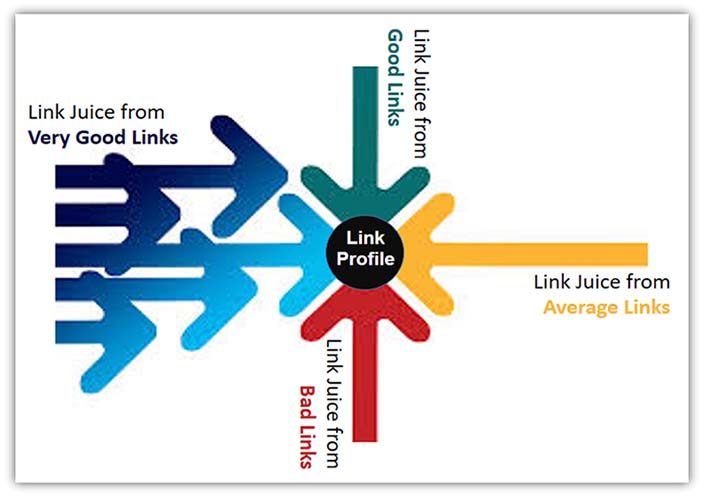
It is a common practice by referring domains to connect their posts to contents on other webpages if it is useful, relevant, and/or authoritative in a way to their own website.
Backlinks are considered as a ‘vote’ of confidence for the content that is being linked to a domain.
14. Link Juice: Link Juice is the value of the collective Link Equity passed from other sites to a webpage. It depends upon number and quality of the backlinks it is receiving from the other sites.
There are numerous Direct and Indirect ways to get backlinks to your webpage from other websites.
Direct ways refer to the Link Building Methods, such as Guest Posting, Social Bookmarking, Directory Submissions, Document Sharing, etc. where we put in efforts directly to promote our brand or page.
Indirect ways refer to getting Links for creating and presenting excellent content on your page which entices the readers or visitors to talk about and share your content, creating backlinks naturally.
We will discuss all these in details in a while.
So, the Value of Authority (Link Equity) that passes from the Linking/ Referring Sites to the Linked Site or page, is actually the Link Juice.
Link Juice is also known as ‘Link Strength’.
15. Dofollow links: As a matter of fact, all the Hyperlinks are Dofollow links. This means that they allow the Search Engine bots to follow the link and reach the website or webpage linked to that hyperlink.
Dofollow links pass on the Link Juice to the Linked website.
16. Nofollow links/ Website: Nofollow Links are links with a no-follow attribute to them. The No-follow attribute basically do not allow search engine bots to find and follow the mentioned website or page in the link.
Nofollow Links do not pass on the Link Juice to the Linked Website.
17. Good Links : As stated by Google's John Muller on good link and how to get them:
“A good link: A good link… so I mean the traditional good link is someone who comes across your website and thinks it’s a fantastic website and recommends it to other people with a link.”
Good Links add value to your Domain Authority and Backlink Profile, by bringing quality link juice from good, influential, high traffic and relevant websites.
18. Bad Links: Bad links are those links that degrade the value of your website’s Domain Authority and Backlink Profile.
When you get a link from an irrelevant website, or get link from a non-related anchor text, etc. they make up to be a Bad Link.
They do more harm to your website. One should avoid getting such links.
19. Traffic: ‘Traffic of a website’ refers to the ‘count of visitors’ who arrive at the website.
Most of the visitors of a webpage visit the page after clicking on a search result which lead to that particular website.
There are certain analytical programs and tools that help in calculating the Traffic Count on a Website or a webpage. Outsource SEO analytics to know your traffic source and to increase website traffic.
20. Conversion: When the visitor performs the desired action or completes a goal at the website, it is known as Conversion.
Conversion is the transformation of a visitor of a website into a customer of the website. It is the end of a customer’s journey on the webpage for that visit.
A website’s ‘Conversion Rate’ is the number of times a user completes a web page goal against the total Traffic of that webpage.
A Conversion Rate is calculated in percentage. The number of potential visitors reaching the webpage’s goal by performing the desired action like buying a product, filling out a form, etc. is divided by total number of visitors of the webpage.
21. ROI (Return on Investment): ROI basically means the outcome result of an investment made.
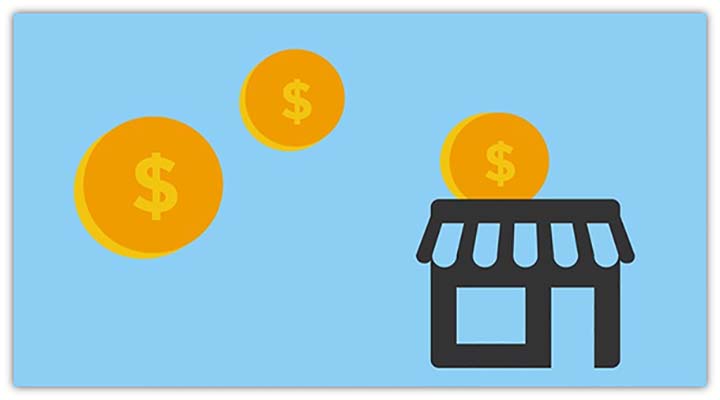
The return or the outcome is always expected to be greater than the investment made either in the form of money, time, energy or resources spent on a business.
Now, that we have covered some basic and important Link Building related terms, let’s get into answering the what, why, when, how questions related to Link Building. We will also discuss the list of few of best strategies for Link Building.
What is Link building?
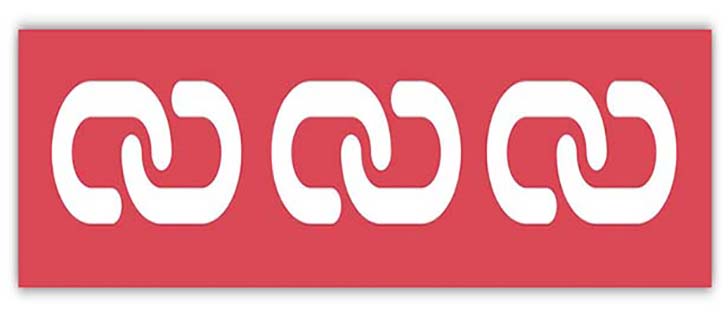
As discussed earlier, simply put in one sentence, it is the ‘Process of obtaining Backlinks’ to your page.
Building and maintaining a good Backlink Profile is critical for Search Engine Optimization as Backlinks are one of the crucial ranking factors in Google’s Search Engine algorithm.
Backlinks should come from sites which have high authority and popularity, and are relevant, influential and unique domains.
When to Build Links?
It is a regular process to increase brand awareness, traffic, conversions, or ROI. Building Links needs to be done consistently and regularly.
Every company keeps striving for more and more growth in terms of ROI, conversion or awareness. Hence, you’ll realize that, as growth is a constant thing, Link Building is a constant process as well. It plays a curial part in a company’s online digital marketing platform.
Link Building is a continuous optimization process. However, to increase brand awareness, businesses can opt for various online marketing methods such as email marketing, social media marketing, and PPC advertising. Suppose an enterprise wants to increase website visibility. In that case, it can contact a digital marketing company that will customise SEO according to the enterprise and build brand awareness through local SEO.
Why to Build Links?
Link Building is done to promote your brand to get higher traffic, which brings to better conversions leading to achievement of the targeted ROI.
Link building also help Search Engines calculate your website’s Domain Authority and Website Ranking.
Benefits of Link Building:
As stated above, Link Building plays an important role in growth of a company’s online presence.
There are many benefits of Building Links. But, a not well-thought and strategized link building process may lead to negative results and devalue a website. They are counted as Bad Links. Its best to avoid getting involved with Bad Links. It is important to build Good Links which increases the Brand Value.
Good Link building helps in:
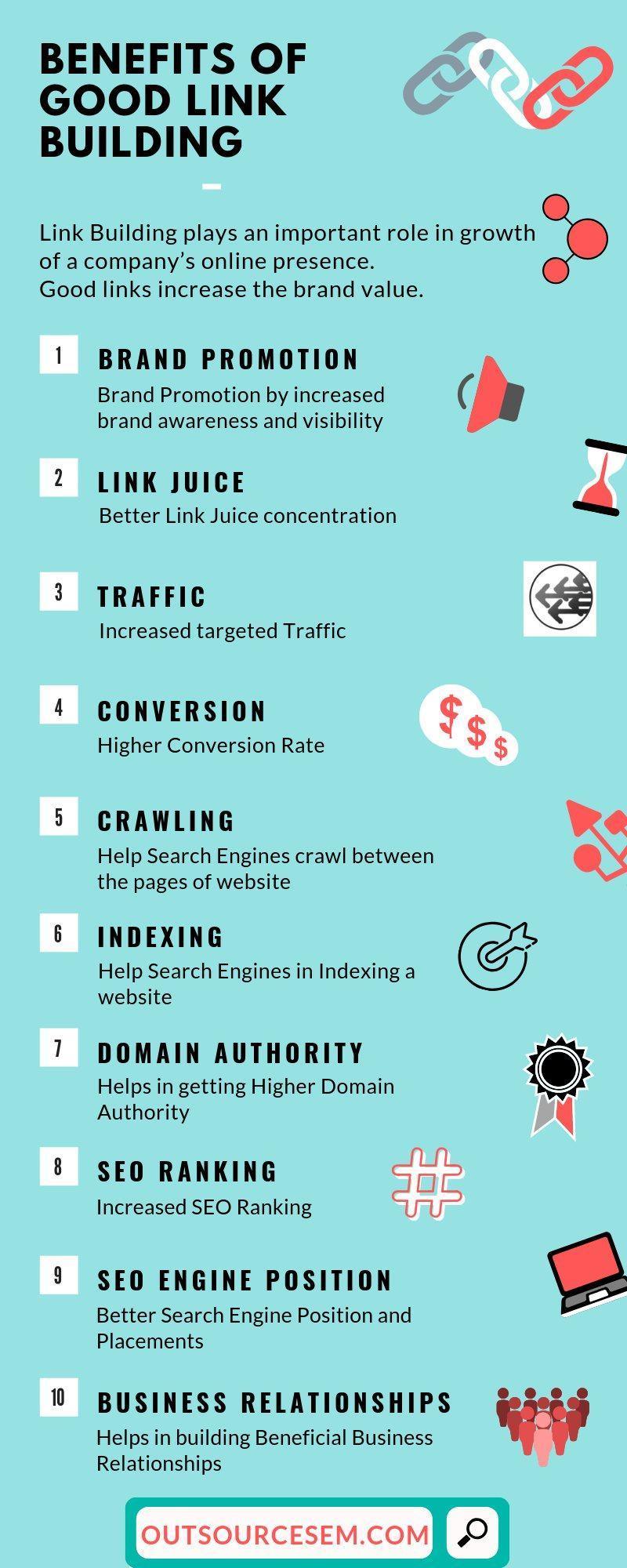
1. Brand Promotion: Good Links increases your brand awareness and visibility. Good links help visitors of other websites notice and reach your brand.
2. Better Link Juice concentration: Links from good and relevant websites or sources pass on better quality Link Juice to your website. It helps in creating a better Backlink Profile.
3. Higher targeted traffic: Links from relevant and related sites help in letting target users reach your website.
4. Higher conversion rate: Higher targeted traffic increases the probability of conversion (website visitors to customers).
5. Help Search Engines in crawling: Search Engine bots are able to crawl between your website pages with the help of internal links.
6. Help Search Engines in Indexing your site: Better crawling by Search Engine bots help in better indexing by Search Engines.
7. Higher Domain Authority: Good Links are one of the factors for increased Domain Authority score.
8. Increased SEO Ranking: Search Engine give better ranking to the websites with good links and higher Link Profile.
9. Better Search Engine positioning and placement: Better Domain Authority is preferred by Search Engines to provide better Positions and placements to the websites.
10. Building Beneficial Business Relationships: The process of Link Building requires interaction with other domains in your industry which helps in creating excellent and beneficial business relationships.
Important points to always remember:
• The Quality of links is more important to a website than the Quantity of the links.
• Backlinks must appear to be natural.
• Ensure links are relevant and of good quality. Only good quality links will add value. Bad linking will have adverse effects and degrade the value of your website.
• Always keep links aligned to the company’s goal or agenda. Ensure that the links are linked to the relevant page which gives you the desired result.
• Always keep links coordinated with the content. If you are creating a link, ensure that the link takes the reader to a content that is in relation to the subject of the content, the reader has been already reading.
• Don’t pay webmasters for backlinks. It is not considered as a fair link building practice.
• Don’t participate in activities that may make your backlinks appear unnatural or spam.
• Don’t ask webmasters to create backlinks with certain specification that may result in some kind of pattern and gets noticed by Search Engines (like Google Penguin) and cause penalty for not following the Fair Linking Practices.
Different types of Link Building:
There are many different types of links based on different criteria. Like, the webpages they are being posted on. Or, the webpages they are linked to. Or, the content of the links like the anchor text used for them.
As the plan here is to focus more on the strategies for link building (none the less, it is important to know the different types of links for better understanding), I am providing a link here to a great post by Search Engine Journal where you’ll find 50 types of links you want
Value of Backlinks in Link Building:
Backlink is a way for readers or visitors to find other sources of data or information on the same or related subjects for the reader.
Backlinks create a great user experience as they can transfer the reader directly to additionally desirable information available online, if needed.
In Search Engine Optimization, Backlink profile of a page helps in deciding the page’s value, importance and authority. It is more focused on the quality of sites from which the backlinks are coming.
Some domains have high authority score and are trusted sources. It is always better to get backlinks from such domains. Government sites, educational institute sites, founder organisation sites are more reliable and trusted, and have more authority score as perceived by search engines.
How to build good links?
There are many strategies practiced by people in the industry for building good links. Some are natural ways, some are unnatural. Both require a lot of focused and planned efforts.
Let’s discuss some of the strategies in industry on how can we build good links for the benefit of our website or brand.
Efficient and effective work lead to creation of good links. Below, you can find a List of the Best Practices and Strategies followed by major influencers and brands in the SEO industry.
List of Practices for Efficient Link Building:
1. Creating Great Content
2. Guest Posting
3. Blog Commenting
4. Link Building through Off Page Optimization
• Dofollow Forum Participation
• Directory Submission
• Resource Page Backlinks
• Writing and Posting Testimonials
• Content Promotion
• Brand Monitoring - Link Claim
5. Link Building through Creating Different Types of Contents
• Ego Bait Content Creation
• Posting Infographics
• Newsjacking
• Free Product Creation
6. Link Building Through Different Link Profile Analysis
• Competitor’s Backlink Profile Analysis
• Brand’s Backlink Profile Analysis
7. Link Building Through Broken Links
There are many other ways for link Building as well. These 19 efficient practices would get you the most outcome. We’ll discuss these in in separate sessions in detail.
This brings us to the end of Basics and Fundamentals of Link Building and to the end of our first chapter.
In conclusion, link-building is a fundamental part of any SEO strategy. Acquiring high-quality backlinks from relevant websites can increase your website's authority, improve its ranking in search results, and drive more qualified traffic. Remember, focus on quality over quantity, and prioritize natural-looking links.
This guide provided a strong foundation for understanding link building. As you progress with your SEO efforts, consider exploring these related terms to delve deeper into specific industries with services like painting SEO, plumbing SEO, construction SEO, Appliance Repair SEO, HVAC SEO and much more. Each industry has its own unique set of challenges and opportunities when it comes to link-building. By tailoring your strategy to your niche, you can achieve even greater success in search engine optimization.
Did you find this post helpful? I hope you did!
See you soon in the next session. Until then, good bye and take good care.
Click here for Chapter 2: Ultimate Guide to Building Links by Creating Great Content
